Social Science and Humanities Research Council of Canada (SSHRC) Insight Grant (2025-2030). Reconciliation in Canadian Parks and Protected Areas.
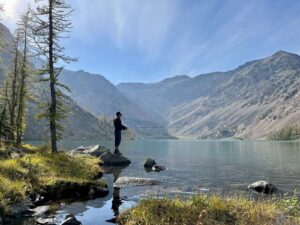
This project examines the innovative strategies and new partnership developments in protected areas throughout Western Canada.
Principal Applicant: Courtney W. Mason.
Co-Applicants: Patrick Brouder, Kim Thomas-Francois, Jason Johnston, Jess Owen, Anna Carr, Bill Snow, Joel Wood.
The Blair Climate Change Research Initiative Fund. Parks as Climate Resilience and Indigenous-led Conservation (2024-2026).
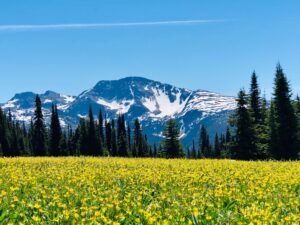
This project examines the forms of climate resilience that exist through Indigenous-led conservation in British Columbia.
Principal Applicants: Courtney W. Mason & Joel Wood.
Braiding Knowledge Canada. British Columbia Parks and Protected Areas Research Knowledge Hub (2024-2027).
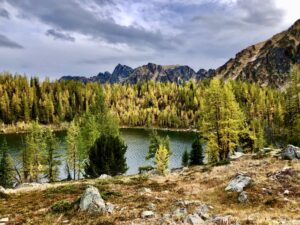
Principal Applicants: Courtney W. Mason & Jason Johnston.
This research supports a new knowledge hub that works directly with communities to enhance their conservation initiatives. Pressing issues: Carbon sequestration, ecosystem services, renewable energy, the loss of biodiversity and tourism development are at the centre of these projects.
British Columbia Parks. Living Lab for Climate Change & Conservation Program (2022-2023).
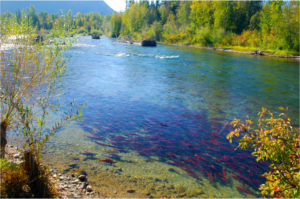
Secwepemc Perspectives of Climate Change and Resiliency in Tsútswecw Provincial Park, BC.
Principal Applicant: Courtney W. Mason.
Co-Applicants: Carmen Massey & Wes DeArmond (BC Parks).
This project focuses on sockeye salmon and Secwepemc experiences of environmental change in Tsútswecw Provincial Park, BC.
British Columbia Parks. License Plate Program (2020-2022).
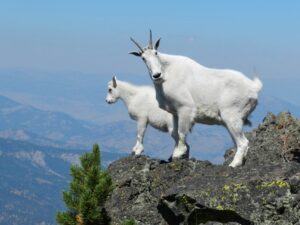
Cathedral Provincial Park’s Human-Mountain Goat Dimensions Project: Understanding Broader Land Use Change and Local Impact
Principal Applicant: Courtney W. Mason.
Co-Applicants: Kirk Safford (BC Parks).
This is a project that examines human and mountain encounters in Cathedral Provincial Park in Southern BC. It has both wildlife behaviour and conservation aspects as it considers changes in local land use management policies.
Networks of Centres of Excellence (NCE). Canadian Mountain Network (CMN) (2019-2023).
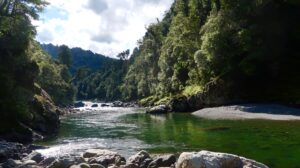
Indigenous Land Rights in Canada and New Zealand: Sustainable Protected Areas in Rural and Mountain Environments.
Principal Applicant: Courtney W. Mason.
Co-investigators: William Snow (Nakoda Consultation, Alberta); Dr. Anna Carr (University of Otago); Lois Philipp (Fort Providence, NT).
This is a four year project with the newly formed Canadian Mountain Network. This research examines how communities are asserting Indigenous land rights and alternative models of governance structure through sustainable protected areas in mountain regions of the Northwest Territories, Alberta and in Aotearoa/ New Zealand.
Social Science and Humanities Research Council of Canada (SSHRC) Insight Grant (2018-2024).
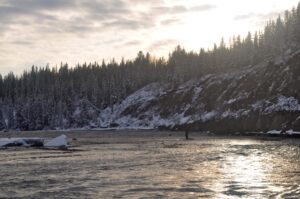
Fostering Land Based Food Initiatives as a Local Food Security Strategy in Northern Indigenous Communities in Canada.
Co-Investigators: Dr. Michael Robidoux (PA, University of Ottawa); Dr. Cindy Gaudet (University of Alberta); Dr. Natalie Clark (Thompson Rivers University).
This five year project examines grassroots community-based food initiatives in four First Nations and Métis communities in Northern Ontario and the Northwest Territories. Community Partners: Moose Cree First Nation, ON; Wapekeka First Nation, ON; Kasabonika Lake First Nation, ON; Fort Providence, Northwest Territories.
Canadian Institute of Health Research (CIHR) Grant (2017-2022). Indigenous Mentorship Program.
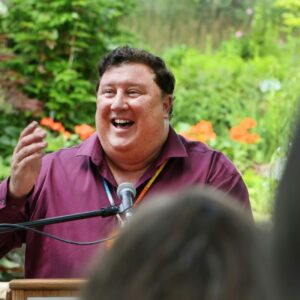
Dr. Rod McCormick at announcement
Ombaashi: Indigenous Mentorship Program. National Training Centre
Co-Investigators: Dr. Rod McCormick (NPA, Thompson Rivers University); Dr. Natalie Clark (Thompson Rivers University); Dr. Lisa Bourque Bearskin (Thompson Rivers University); Dr. Airini (Thompson Rivers University); Shelly Johnson (Thompson Rivers University); Dr. Darlene Sanderson (Thompson Rivers University).
This is a grant that fosters an international network of Indigenous health researchers and knowledge keepers. In particular, it is designed to support Indigenous graduate students.
Community-Driven Research Fund (United Way, 2017).
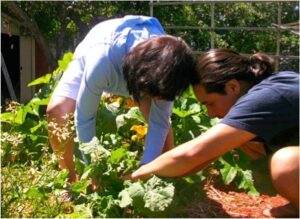
Generating a Food Systems and Organizations Database: Local and Regional Food Policy Change.
Principal Applicant: Courtney W. Mason.
Collaborators: Addie de Condole, (Kamloops Food Policy Council, Administrator) and Dominique Hazel (TRU Graduate Student).
The mission of the Kamloops Food Policy Council is to be an open, welcoming network that fosters and strengthens the Kamloops region community food system by working collaboratively to influence policy, share knowledge, stimulate dialogue, catalyze action, and initiate project partnerships. This project aims to produce a database to map local and regional food organizations to promote positive changes to local food production and related policy issues.
Community-Driven Research Fund (United Way, 2017).
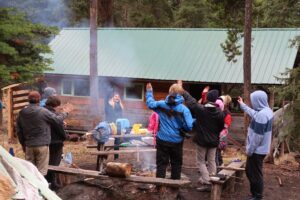
Evaluating White Buffalo Physical Activity and Health Programs for Young Indigenous Women.
Principal Applicant: Courtney W. Mason.
Collaborators: Clarice Silva, (White Buffalo Métis and Aboriginal Health Society, staff member) and Kelsey Boule (TRU Graduate Student).
White Buffalo is a non-profit society dedicated to the advancement and promotion of health and social well-being for Urban First Nations, Inuit and Métis individuals, families and community; on local, regional and provincial levels. This project supports a number of physical activity, sport and health programs designed to meet the needs of young Indigenous women who live in Kamloops.
Social Science and Humanities Research Council of Canada (SSHRC), Insight Development Grant (2016-2019)
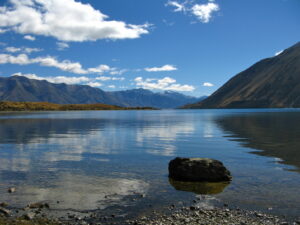
Contested Boundaries: Indigenous Peoples, Tourism and Protected Areas in Canada and New Zealand.
Principal Applicant: Courtney W. Mason.
Co-Investigators: William Snow (Nakoda Consultation, Alberta); Dr. Anna Carr (Otago University).
This project examines how Indigenous communities in Western Canada and New Zealand are reasserting their cultural rights in the co-management and management of parks and protected areas.
Canadian Foundation for Innovation (CFI) Grant, (2016-2019).
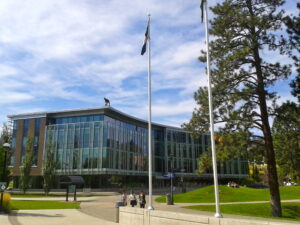
This grant provided the resources to set up the Rural Livelihoods and Sustainable Communities Lab (Student Work Space). This includes new computer and camera technology, outdoor and safety gear as well as great mountain view. The Lab is in Thompson Rivers University’s beautiful House of Learning.
Sport Canada/SSHRC, Sport Participation Research Initiative (2015-2018).
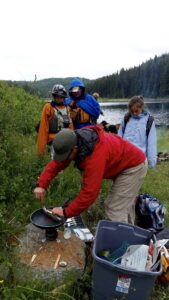
Cultural Relevancy and Positive Youth Development: Exploring the Physical Activity and Sport Experiences of Indigenous Youth in Canada.
Principal Applicant: Courtney W. Mason.
Co-Investigators: Dr. Leisha Strachan (PA, University of Manitoba); Dr. Tara-Leigh McHugh (University of Alberta).
This project investigates the barriers that marginalized youth have in accessing physical activity and health programs in three Canada cities: Edmonton, AB; Winnipeg, MB, and Kamloops, BC.

